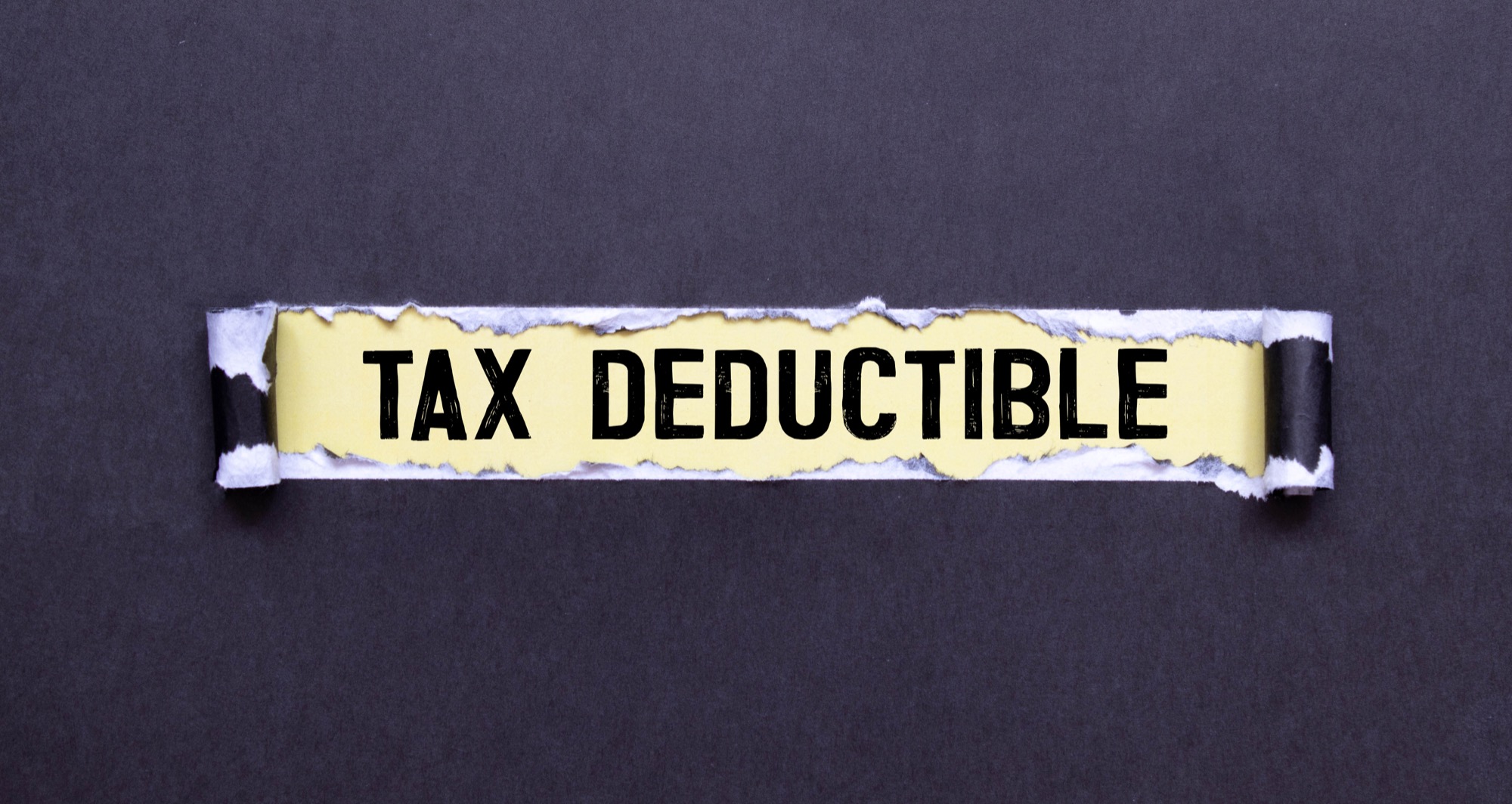Do you have life insurance? Has it been structured to give you access to its value while you’re living?
Life insurance is not a one-size-fits-all financial tool. You’ll typically choose between three types of insurance: Term Life, Universal, or Whole Life Insurance. Term life insurance is the most affordable option, but its benefits are only available for a specified period. Permanent life insurance includes several types (including universal and whole life) and is active until you pass away as long as your premiums are paid.
A participating life insurance plan can provide more than death benefits to your loved ones. It can provide you with an asset you can borrow against to pay off debts or make large purchases for anything you need.
In this article, we’ll compare permanent and whole life insurance through the lens of the Infinite Banking Concept. We’ll help you understand the features and benefits of each, and how you can choose the best one as a core financial tool to Become Your Own Banker and achieve the financial independence and freedom you deserve.

What Is Permanent Life Insurance?
Permanent life insurance is a category of insurance that provides coverage for your whole lifetime. Your beneficiaries receive a death benefit payment when you pass away, and your policy builds a cash value that you can use as collateral to borrow against during your lifetime. You can use this value to pay down debts or pay for life’s expenses through the Infinite Banking Concept.
Here’s what makes permanent life insurance unique:
Lifetime Coverage
The benefits of your permanent life insurance plan remain as long as your premiums are paid. This lifetime coverage includes a death benefit for your beneficiaries. On the other hand, term life insurance benefits only remain for the term of your policy and will only include a death benefit if you pass during the policy term.
Cash Value Accumulation
Permanent life insurance policies build a cash value over time. You can use this cash value as collateral to borrow against anytime, for any reason, during your lifetime. Many use this cash loan to pay off debts, make investments, or purchase homes, cars, boats, or other desired items. You can also use your loan to pay your policy premiums.
The best part is that even if you borrow against your policy, the cash value continues to grow, tax-deferred within your policy. Unlike traditional loans from other lenders, borrowing against your policy affords you great payment terms and flexibility to meet your needs.
Premium Flexibility
Unlike other types of insurance (like car insurance, for example), some types of permanent life insurance provide more flexibility in premium payments. Within certain limits, you can adjust your premium payments to match your needs and budget.
Note: If you plan to borrow against the cash value of your policy, you’ll want to increase your premium payments as much as possible so that this cash value grows and compounds more quickly. You can also choose to add additional paid-up additions (PUAs) to your policy at any time to further expedite its growth.
Types of Permanent Life Insurance
Permanent is a category of life insurance that includes:
Whole life insurance: Fixed premiums, guaranteed death benefit, predictable cash value growth
Universal life insurance: Flexible premiums, flexible death benefit, cash value tied to interest rates
Variable life insurance: Flexible premiums, flexible death benefit, cash value can be invested to potentially increase or decrease in value based on market performance.
Ready to take control of your financial future?
Speak with an Ascendant Financial Advisor today and start building a strategy that protects your legacy.
What Is Whole Life Insurance?
Whole life insurance is a type of permanent life insurance with fixed premiums, a guaranteed death benefit, and predictable growth in your policy’s cash value. Some consider it the most straightforward form of permanent life insurance. It’s the core tool used in Infinite Banking Strategy as part of a long-term wealth management strategy.
Here are the core features of whole life insurance:
Guaranteed Coverage and Premiums
Your whole life insurance is in force for your entire lifetime, or as long as you stay up-to-date in premium payments. It doesn’t matter if your health or age changes; your premiums will never increase, and your coverage is guaranteed to remain in force.
That said, you can increase your policy benefits (death benefit and policy cash value) with additional paid-up additions (PUA). You can use your own cash or earned dividends from your policy to purchase additional, fully-paid top-ups to your plan at any time. These extra cash infusions will increase your coverage, boost compounding growth, and increase the death benefit.
Due to its guaranteed coverage and premiums, whole life insurance policies are a reliable option for those who value the benefits of long-term financial planning, rather than unreliable get-rich-quick schemes.
Cash Value Growth
Your whole life insurance policies accumulate cash value over time, which grows at a guaranteed rate, providing predictable growth. Even if you borrow against its cash value, your policy continues to grow, uninterrupted.
In participating whole life insurance policies, policyholders are considered part owners of the company. As such, they may earn a share of the company’s annual profits, payable through a dividend. Policyholders can use this dividend and reinvest it into their policy to increase their cash value and death benefit. These paid-up additions add to the policy’s compounding growth.
The Death Benefit
Another positive feature of whole life insurance is that the death benefit is guaranteed. Its value never changes (unless you increase your premium payments to purchase additional top-ups). Your policy’s death benefit provides financial security for your loved ones.
Advantages of Whole Life Insurance
A whole life insurance policy is the core financial tool in Infinite Banking. Properly structured policies provide a guaranteed death benefit for your loved ones. This lifelong coverage allows you to borrow from the compounding cash value for any reason (such as debt repayment, large purchases, or investments) while your policy value continues to grow uninterrupted.
Example: Switching From Universal to Whole Life Insurance
Our client Samantha is a business owner. During our early consultations, she was leaning towards universal life insurance due to its perceived flexibility. However, after a needs assessment and financial review, she ultimately chose a dividend-paying whole life insurance policy.
Why? She realized that universal life shifted investment risk onto her, while whole life offered guaranteed cash value growth and co-ownership in the insurance company (dividends). Over the course of ten years, the cash value of her whole life policy grew from $4,500 to $220,948, with the death benefit increasing from $721,000 to $1.114 million. All of this growth happened due to daily compounding and uninterrupted growth.
“This stability allowed her to access $198,000 for business opportunities without market volatility concerns, achieving financial goals on her terms,” says her Ascendant Financial Advisor.
Comparison: Permanent Life Insurance vs Whole Life Insurance
Let’s compare the overarching permanent life insurance category with whole life insurance to understand where they are the same and where they differ:
Key Differences
| Permanent Life | Whole Life | |
|---|---|---|
| Coverage | Other types may have different premium flexibility and death benefits | Fixed premiums and predictable cash value growth |
| Cash Value | May have less predictable growth (based on market conditions and interest rates) | Guarantees cash growth |
| Premiums | Some types have flexible premiums and health benefits | Fixed premiums |
| Flexibility | Some types allow you to adjust coverage if your financial situation changes | Less flexibility than other permanent life policies |
| Risk | Low to high risk depending on plan and investments | Lower risk |
Common Mistakes When Comparing Policies
Our financial advisor team has helped over three thousand clients structure whole or permanent life insurance policies to use through Infinite Banking. In that time, we’ve noticed that many clients have similar initial misconceptions or assumptions. Risk tolerance is something some clients often underappreciate the value of:
“While [universal life] policies may seem appealing due to lower initial premiums, they shift investment and mortality cost risks to the policyholder,” says one of our Ascendant advisors. “Over time, rising internal costs and market volatility can erode the policy’s value, leaving families without the expected benefits when they’re needed most.”
Many clients also underestimate the importance of the guaranteed growth and stability of whole life insurance:
“Unlike UL, whole life policies provide uninterrupted cash value growth, co-ownership in the insurance company, and contractual guarantees that protect against market fluctuations. People often fail to recognize that whole life is a long-term financial tool, not just a death benefit.”
Pros and Cons
To provide this comparison in a different way, let’s summarize the pros and cons of each life insurance option.
| Pros | Cons | |
|---|---|---|
| Whole Life Insurance | Guaranteed coverage Fixed premiums Predictable cash value growth Financial stability and long-term guarantees | Potentially higher premiums Limited flexibility Potentially lower growth potential (compared to other market options) |
| Permanent Life Insurance | Flexible premium & death benefits Potential for higher cash value growth Ability to adapt plan over time based on your changing needs | Requires more hands-on attention to monitor investments and payouts Less certain growth in some plans Can have complex terms and cost structures |
Curious about the pros and cons of permanent life insurance and another popular life insurance: term life? Read more in our resources center.
Take control of your financial future.
Schedule a consultation with Ascendant Financial and ensure your financial choices align with your long-term goals — before it’s too late.
Which Option Is Best For You?
Now, you understand that whole life insurance is a part of the larger permanent life insurance category, which includes other life insurance options. The question now remains: Which option is best for you?
Assess Financial Goals and Needs
First, take a close look at your current financial situation. Have a clear picture of money going in and out of your accounts. This will help you understand your disposable income (which could be used towards your premiums) and your debts.
Next, look at your financial goals. Do you plan to retire soon and are you considering purchasing a lakeside cabin? Do you plan to buy a new car within the next three to five years? Look at what future expenses you expect to have and think about how you intend to pay for them.
It’s also helpful to consider how much flexibility you may need to adjust your plan or coverage between now and your passing.
If flexibility is a top concern, consider a permanent life insurance plan (like universal or variable life).
If you have significant future expenses or debt planned and can afford higher premiums to accelerate your cash value growth, consider a whole life plan. Focus on building up your compounding growth to accelerate your cash value increase.
Our financial advisors also start with a detailed needs assessment:
“This involves understanding their financial goals, cash flow, and long-term plans. For most, dividend-paying whole life insurance stands out due to its contractual guarantees, uninterrupted cash value growth, and co-ownership benefits. However, I also explain the risks and limitations of alternatives like Universal Life, which shifts investment risk to the policyholder and often includes hidden fees. The choice ultimately depends on aligning the policy’s structure with the client’s unique objectives.”
Consider Your Budget
Your policy inclusions and value will be based on the premiums you pay. As you’d expect, the more you pay in premiums, the higher your death benefit will be, and the faster you can build up cash value to borrow against.
If you have limited cash or irregular cash flow, consider whole life plans as they’re typically priced lower.
If you have the cash for higher premiums, consider other permanent life insurance options.
Look for Long-Term Coverage
Both life insurance options will provide you with long-term coverage throughout the life of your paid-up policy. However, if you’re looking for guaranteed lifelong coverage with predictable growth, whole life insurance may be a good fit for you. If flexibility to change your premium and policy is more important, a permanent insurance, such as Universal Life, may be more suitable.
Ultimately, you need to weigh your needs and risk tolerance to determine which types of life insurance are best for you. When implementing the Infinite Banking Concept, your life insurance policy becomes a foundational financial tool. It’s critical to consult with a financial advisor to ensure your plan is structured with the right coverages and options to support this long-term strategy.
Learn more about how the financial advisors and coaches at Ascendant Financial can help you get started.
How to Get Started with Permanent or Whole Life Insurance
Are you ready to change your financial future and take control of your money? If you’re ready to get started with Infinite Banking and harness the benefits of your whole life insurance during your life, talk to a financial advisor.
Here’s what to expect when you get started:
Step 1: Your advisor will teach you about Infinite Banking and how your whole life insurance policy fits within that financial lifestyle. Use this time to ask questions so you feel confident that it’s right for you.
Step 2: Your advisor will review your budget and current financial state. They will also help you evaluate your financial goals.
Step 3: Your advisor will help you determine what policy and coverage you need to live the life you’ve always dreamed of, while becoming your own banker.
Step 4: Your advisor will gather insurance quotes and assist you in creating a policy that meets your specific needs.
The key success factor here is to personalize and structure your plan specifically to your needs. This is where working with an Ascendant Financial advisor helps. We provide personalized assistance in selecting the right policy and structuring it to fit your needs.
Learn more about how we work with you to personalize your life insurance plan.
The bottom line: Securing your family’s future wealth
Infinite Banking uses your life insurance policy as a financial tool to help secure your family’s wealth while allowing you to live your best life today. The predictable, long-term growth of a whole life insurance policy can make that happen for you, especially when you capitalize on its regular, compounding growth.
Contact an Ascendant Financial Advisor to learn more about structuring your policy to meet your needs. Let us help you find a policy that supports your long-term financial goals.
Contact an Ascendant Advisor today to get started.
Frequently Asked Questions
Is whole life the same as permanent life insurance?
Whole life insurance is a type of permanent life insurance. Permanent life insurance policies provide lifetime coverage for as long as your premiums are paid. Whole life insurance includes fixed premiums, a guaranteed death benefit, and predictable growth in your policy’s cash value.
How long do you pay for permanent life insurance?
Permanent life insurance premiums should be paid until your passing. This is how you’ll receive the full value of your policy. Cancelling your policy may entitle you to a payout of your accumulated cash value in some plans. View the details of your plan with a financial advisor to learn what happens when you choose to or can no longer pay your insurance premiums.
Book a Call with an Advisor at Ascendant Financial
Contact Ascendant Financial today to review all of your financial options.

Popular Posts
- Infinite Banking vs. the Stock Market: What’s the Better Wealth Strategy?
 Infinite Banking vs. the Stock Market: What’s the Better Wealth Strategy? For a long time, building significant wealth has felt out of reach for many… Read more: Infinite Banking vs. the Stock Market: What’s the Better Wealth Strategy?
Infinite Banking vs. the Stock Market: What’s the Better Wealth Strategy? For a long time, building significant wealth has felt out of reach for many… Read more: Infinite Banking vs. the Stock Market: What’s the Better Wealth Strategy? - Infinite Banking vs. Whole Life Insurance: How They Work Together and How They Differ.
 Most people are taught to save, invest, and borrow through institutions they don’t control. But there’s another way to manage your money that prioritizes access,… Read more: Infinite Banking vs. Whole Life Insurance: How They Work Together and How They Differ.
Most people are taught to save, invest, and borrow through institutions they don’t control. But there’s another way to manage your money that prioritizes access,… Read more: Infinite Banking vs. Whole Life Insurance: How They Work Together and How They Differ.
Share This Post
About the Author:
Jayson Lowe
As a seasoned coach, author, and podcast host, Jayson’s insights are rooted in real-world experience and a proven track record of turning challenges into opportunities. He’s not just a speaker—he’s a catalyst for change, inspiring audiences with actionable strategies and the motivation to implement them. Whether you’re looking to ignite your team’s potential, elevate your business strategies, or gain unparalleled insights into entrepreneurship, Jayson Lowe delivers with passion, clarity, and an undeniable impact.
Categories & Tags






